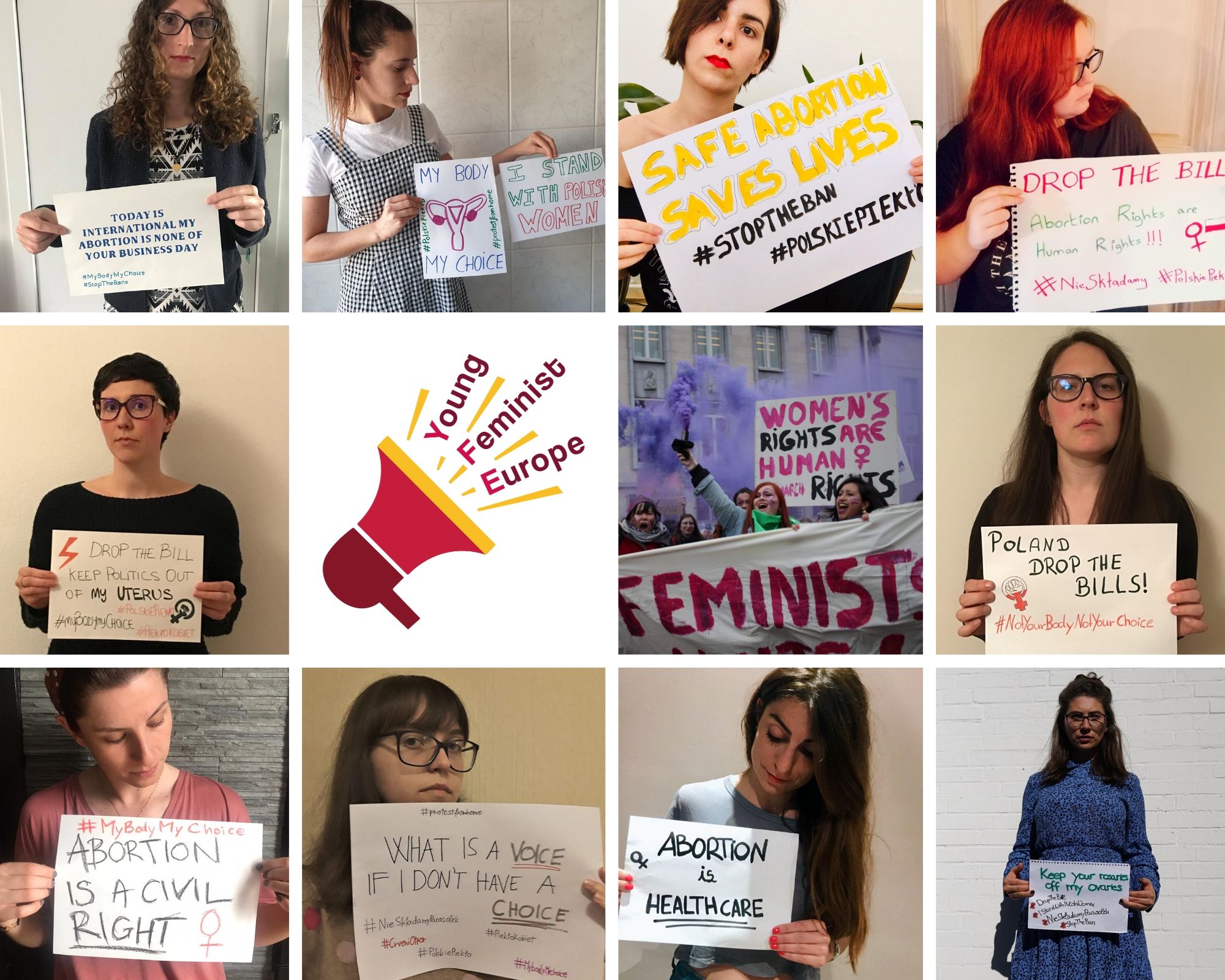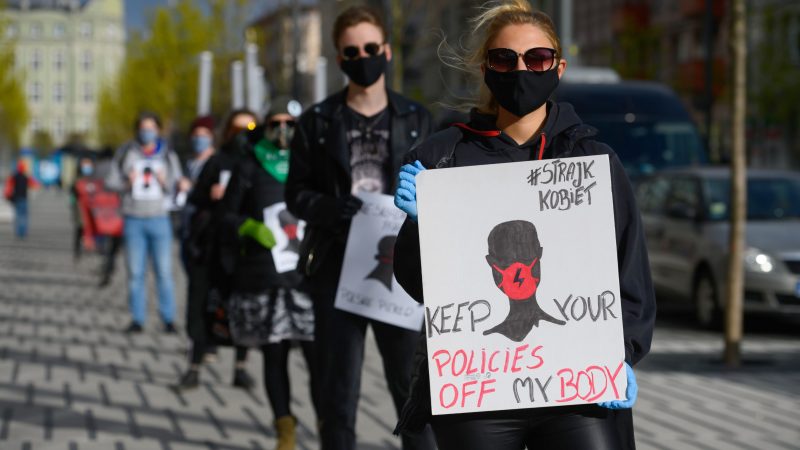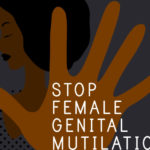As the Covid-19 global pandemic was declared, those of us who have campaigned for abortion rights in one way or another, seemed to take in a deep breath as we mentally prepared for the inevitable. We knew that as the cracks within healthcare systems began to show that abortion rights and services would be under threat. We also knew that where abortion remains illegal, travel restrictions would exacerbate the challenges women and pregnant people face when trying to access abortion healthcare services abroad.
Poland and Malta have come into the spotlight recently due to the impact of Covid-19 on abortion access and rights as both countries are known to have some of the most restrictive abortion laws in the EU. Aleksandar Dimitrijevic from Voice for Choice, a pro-choice coalition campaigning for the decriminalisation of abortion in Malta, informs us that travel restrictions that have been in place since 21st March “basically cut out the most common way women in Malta obtain abortion care. In terms of access to abortion care in Malta, this is nothing short of a disaster” as those who need an abortion would have to travel abroad. He further notes that the issue received increased media attention “when Abortion Support Network tweeted that in one single week in May they received as many calls from women in Malta seeking assistance in obtaining abortion as they usually do in a month.”
With Malta having an outright ban on abortion in all circumstances, access to the non-surgical medical method (abortion pill) is also prohibited. Many women and pregnant people will take the risk in procuring abortion pills from online providers such as Women on Web. Aleksandar highlights that “there has been delays in obtaining abortion pills from abroad”, which we can assume is from a growing demand amid Covid-19 travel and access restrictions.
Many national and local governments globally are attempting to roll back on abortion rights and access as US state authorities in Texas, Ohio, Mississippi, Louisiana, Oklahoma, and Alabama have used shortages of personal protective equipment (PPE) and healthcare staff as an excuse to suspend ‘non-essential’ medical procedures. Meanwhile, US district judge Bernard Friedman overturned the ban on abortion procedures in Tennessee, declaring that there wasn’t sufficient evidence to prove that enough PPE would be saved if the ban was applied.
In Russia, more than 100,000 women and pregnant people are at risk of unwanted pregnancies or botched abortions. In Moscow, hospitals are denying abortion care as the authorities are trying to curb the spread of Covid-19. This comes despite the fact that Russian law stipulates that an abortion can be performed during the first 12 weeks of pregnancy for any reason.
This willful-ignorance in failing to recognize that abortion care is a time-sensitive procedure, can also be found in many EU countries where restrictions on abortion access were already tight.
This willful-ignorance in failing to recognize that abortion care is a time-sensitive procedure, can also be found in many EU countries where restrictions on abortion access were already tight. In Slovakia, many hospitals have also stopped performing abortions following a government decision to postpone all planned surgeries except life-saving ones. The situation is further compounded in that the abortion pill is not legal in Slovakia and the Ministry of Health has not authorised the pill to enter the market even during the Covid-19 pandemic.
Accessing abortion healthcare services in Italy was already a minefield prior to Covid-19 with a short time frame of 7-weeks, a conscientious objection clause limiting the number of providers, as well as making it mandatory for abortion pills to be taken in hospitals. Lockdown in the northern part of the country in an attempt to combat the spread of Covid-19 infections, has highlighted how the bureaucratic barriers to restrict abortion access even at the best of times, has made the situation worse during a pandemic.
Poland is also no stranger to barrier inducing tactics impeding access to abortion as although abortion is banned under law with few exceptions, there are regional disparities and conscientious objection clauses to also contend with. Liliana Religa from The Federation for Women and Family Planning notes that similar trends in making reproductive healthcare inaccessible elsewhere are also happening in Poland. “Consultations are possible only in urgent cases, many clinics and community health centers do not provide telemedical solutions, which hits in particular people outside of big cities.” She also tells us that due to the nature of Covid-19 and movement restrictions, terminating wanted pregnancies due to foetal abnormalities and similar conditions can deepen the traumatic experience as patients are alone.
The Polish national parliament recently held two debates on regressive bills that would have banned abortion for foetal abnormalities as well as penalise sexuality education. Civil society organisations in Poland and beyond mobilised online with the #ProtestAtHome movement, open letters and collecting proofs of international solidarity. Local activists deployed physical distancing protests by blocking traffic in the center of Warsaw, hanging posters in windows and balconies, queuing near the parliament and so forth.
The Covid-19 pandemic has shown that monitoring and maintaining human rights is just as crucial as winning them.
Liliana maintains that “the government should issue uniform instructions for hospitals on how to deal with patients eligible for legal abortion. The lack of provisions is even more problematic in times of crisis. Ultimately it is necessary to liberalise the law and safeguard access to abortion across Poland. The current provisions are inherently wrong – they leave hundreds of thousand people without any help, deepening social inequalities and they will never safeguard necessary healthcare for the people who need abortions. Poles deserve the same healthcare standards as their neighbours in Europe.” Recently, the European Parliament took an unprecedented move by calling on EU member states to ensure their citizens have continued access to reproductive services, including abortion, during the Covid-19 pandemic in a vote of 395 votes in favour to 171 against.
When there are times of crisis, sexual health and reproductive rights and services (especially abortion) are among the most vulnerable to attacks from well-resourced oppositional forces. The Covid-19 pandemic has shown that monitoring and maintaining human rights is just as crucial as winning them. Legal provisions – whether temporary or not – that restrict or ban abortions are proven to not stop them but rather increase dangerous abortions and social inequalities. This crisis of care has also highlighted that abortion is essential healthcare, even in a pandemic.







Thank you so much for sharing this post.